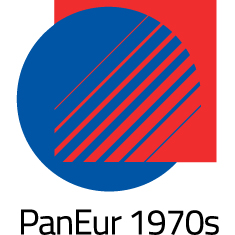Post-Doctoral Positions with PanEur1970s at the European University Institute
Posted on 3 May, 2016 inEastern Europe GDR Post Socialism Socialism

Two Research Associate positions are currently available with the PanEur1970s – Looking West: the European Socialist regimes facing pan-European cooperation and the European Community, based at the European University Institute. This five year project is investigating the European Socialist regimes’ expectations and predicaments vis-à-vis the opening of a space of pan-European cooperation in the long 1970s.
Research Associate Vacancy: GDR and European cooperation in the 1970s (24 months)
Applications are now open for a research associate to study these debates in the German Democratic Republic (East Germany) by exploring and analysing archival as well as published sources.
More specifically, s/he will do research on East Germany’s socialist elites’ views, policies, and ideas on the processes of European cooperation and integration in the 1970s.
The position will be for 24 months, starting from October 2016.
The appointed candidate will receive a monthly net salary of approximately 2500 EUR depending on qualifications and allowances (household allowance, expatriation allowance, travel allowance, medical insurance, and dependents’ allowances, if applicable).
Funding for research missions and participation to international conferences will also be provided.
The candidate will have a PhD in History (preferably international or economic history) or in a closely related discipline, as well as research experience on GDR’s archival records.
S/he will be fluent in German and have good command of English.
Knowledge of other European languages may constitute an advantage but is not required.
Research Associate Vacancy: Bulgaria and European cooperation in the 1970s (24 months)
Applications are now open for a Research Associate to study these debates in Bulgaria by exploring and analysing archival as well as published sources.
More specifically, s/he will do research on Bulgaria’s socialist elites’ views, policies, and ideas on the processes of European cooperation and integration in the 1970s.
The position will be for 24 months, starting from October 2016.
The appointed candidate will receive a monthly net salary of approximately 2500 EUR depending on qualifications and allowances (household allowance, expatriation allowance, travel allowance, medical insurance, and dependents’ allowances, if applicable).
Funding for research missions and participation to international conferences will also be provided.
The candidate will have a PhD in History (preferably international or economic history) or in a closely related discipline, as well as research experience on Bulgaria’s archival records.
S/he will be fluent in Bulgarian and have good command of English.
Knowledge of other European languages may constitute an advantage but is not required.
The deadline to submit applications for both posts is 31 May 2016.
More information and details of how to apply can be found on the PanEur1970s website:
1989 after 1989 Research Fellow Awarded Fritz Stern Dissertation Prize
Posted on 9 December, 2014 in1989 after 1989 Human Rights

Many congratulations to our Research Fellow, Dr Ned Richardson-Little, on being awarded the prestigious 2014 Fritz Stern Dissertation Prize.
He received the award at the 23rd Annual Symposium of the Friends of the German Historical Institute in Washington DC last month, where Richardson-Little also spoke about his dissertation and his research.
 His PhD dissertation: Between Dictatorship and Dissent: Ideology, Legitimacy and Human Rights in East Germany, 1945-1990 (Ph.D. dissertation, University of North Carolina at Chapel Hill, 2013) was praised by the German Historical Institute (GHI) for being an “intellectually challenging and beautifully written study of human rights politics in the German Democratic Republic”. The GHI also commended his work for it’s significant and timely contribution to both historiography on modern Germany and the emerging scholarship on human rights.
His PhD dissertation: Between Dictatorship and Dissent: Ideology, Legitimacy and Human Rights in East Germany, 1945-1990 (Ph.D. dissertation, University of North Carolina at Chapel Hill, 2013) was praised by the German Historical Institute (GHI) for being an “intellectually challenging and beautifully written study of human rights politics in the German Democratic Republic”. The GHI also commended his work for it’s significant and timely contribution to both historiography on modern Germany and the emerging scholarship on human rights.
The GHI’s prize citation reads:
Edward Richardson-Little’s dissertation, “Between Dictatorship and Dissent: Ideology, Legitimacy, and Human Rights in East Germany, 1945-1990,” is an intellectually challenging and beautifully written study of human rights politics in the German Democratic Republic. Upon learning that leaders and supporters of the ruling Sozialistische Einheitspartei Deutschlands (SED) often invoked human rights, one might be tempted to imagine this practice as a cynical use of rhetoric by a dictatorial government to combat a rival Western vision of democracy and capitalism. However, Richardson-Little persuasively demonstrates that the SED and its supporters convinced many religious leaders, intellectuals, and working class supporters that socialism supported an indigenous brand of human rights superior to the individualistic, liberal version offered by the West. Richardson-Little makes excellent use of a wide range of sources from fourteen German archives to argue that, not only was there a thriving debate about human rights in East Germany, but also that citizens used that discourse to express dissent. Quite early, the SED developed its own Marxist conception of human rights to criticize the West, including the dangers of Western imperialism. The East German regime encouraged its citizens to believe that there could be “no human rights without Socialism.” The SED established a Committee for Human Rights, argued for human rights solidarity in the Third World, and used human rights as a basis for international agreements with the West. By the mid-1980s the discourse of human rights fostered by the SED provided peace activists, environmentalists, and advocates of democracy a powerful tool to oppose East German policies as well. The strength of their arguments helps explain the speed of revolutionary impulses by 1989. The SED’s use of human rights discourse, Richardson-Little demonstrates, played a critical role in legitimizing its own downfall. The topic of human rights has received a great deal of scholarly attention from recent historians, largely as part of narratives of the spread of Western values. However, as Richardson-Little points out, contradictions between a rhetoric of human rights and political policies that violate those rights characterized Western powers as well. Historians should be no less willing to accept that contemporaries in East Germany could value human rights, even if their envisioned path to achieving those rights varied significantly from their Western counterparts. In the face of continued debates about the limits of the West’s commitment to human rights, Richardson-Little’s Between Dictatorship and Dissent thus makes a significant and timely contribution, both to the historiography on modern Germany and to the emerging scholarship on human rights.
Richardson-Little will now continues his research with the 1989 after 1989 project at the University of Exeter, where he seeks to complicate the triumphalist narratives of good inevitably overcoming evil, ushering in a unified global human rights culture, by examining the complexity and plurality of human rights in late socialism and the post-socialist world. More information on Dr Richardson-Little research can be found here.
[Top]




